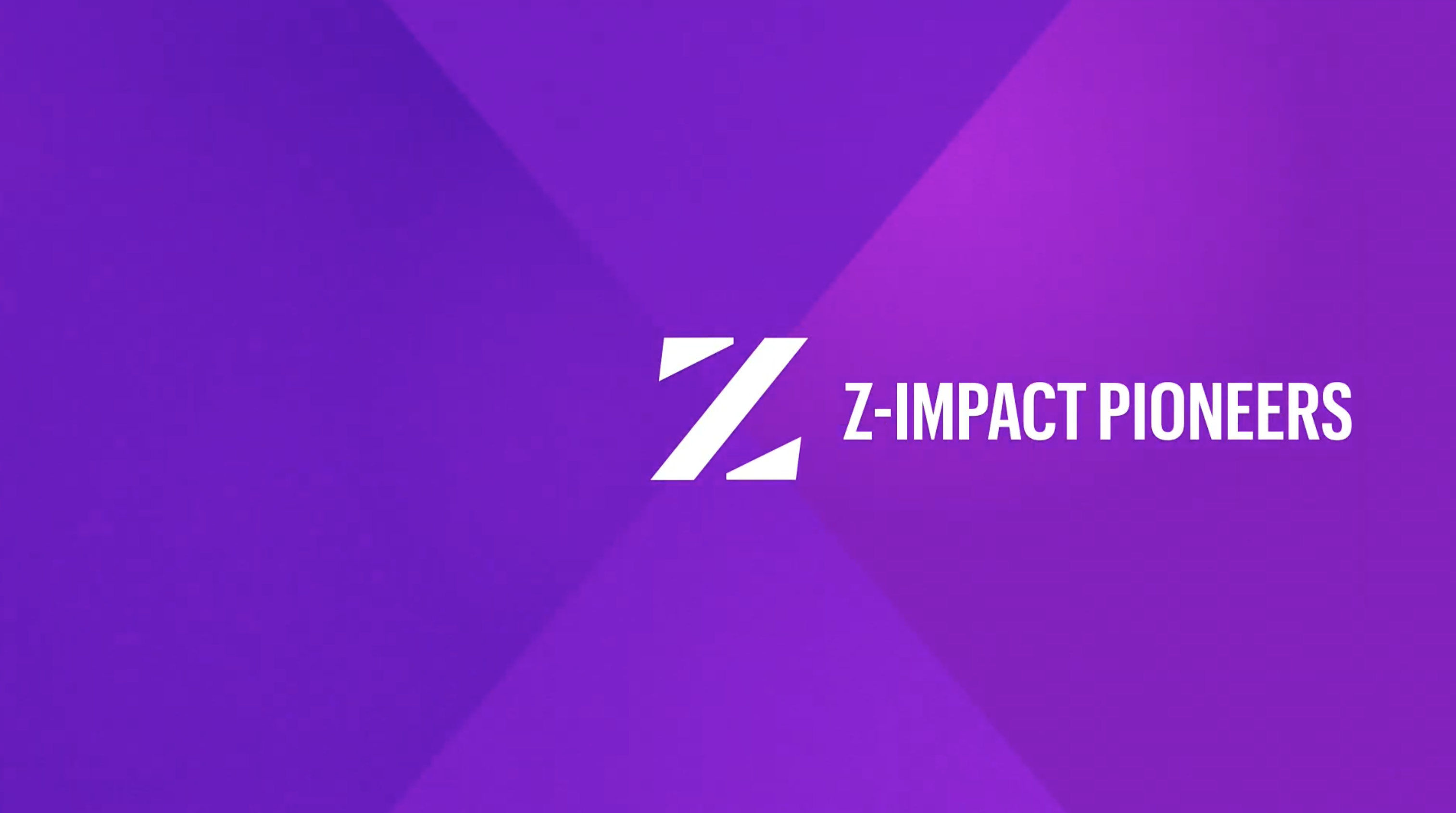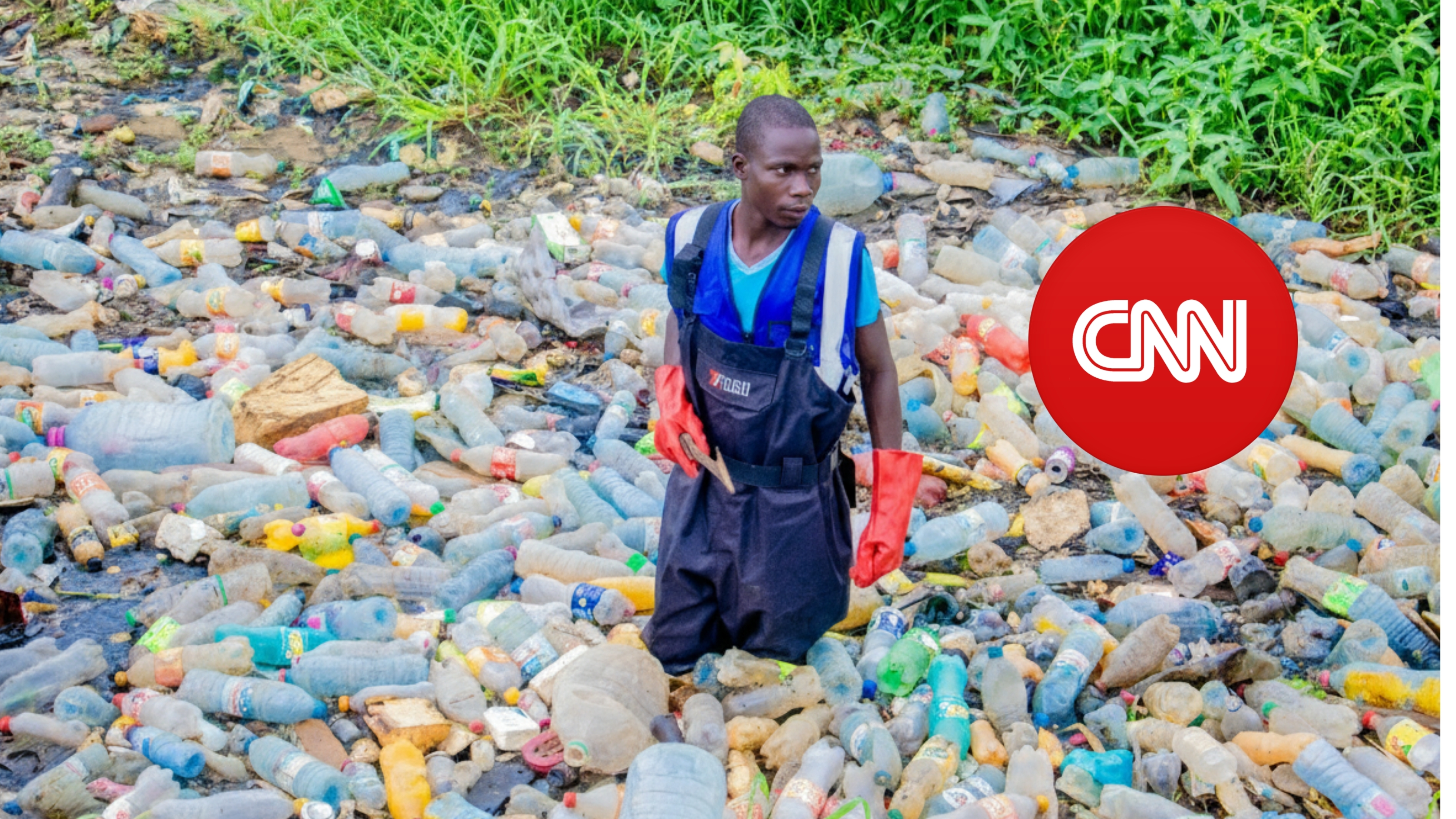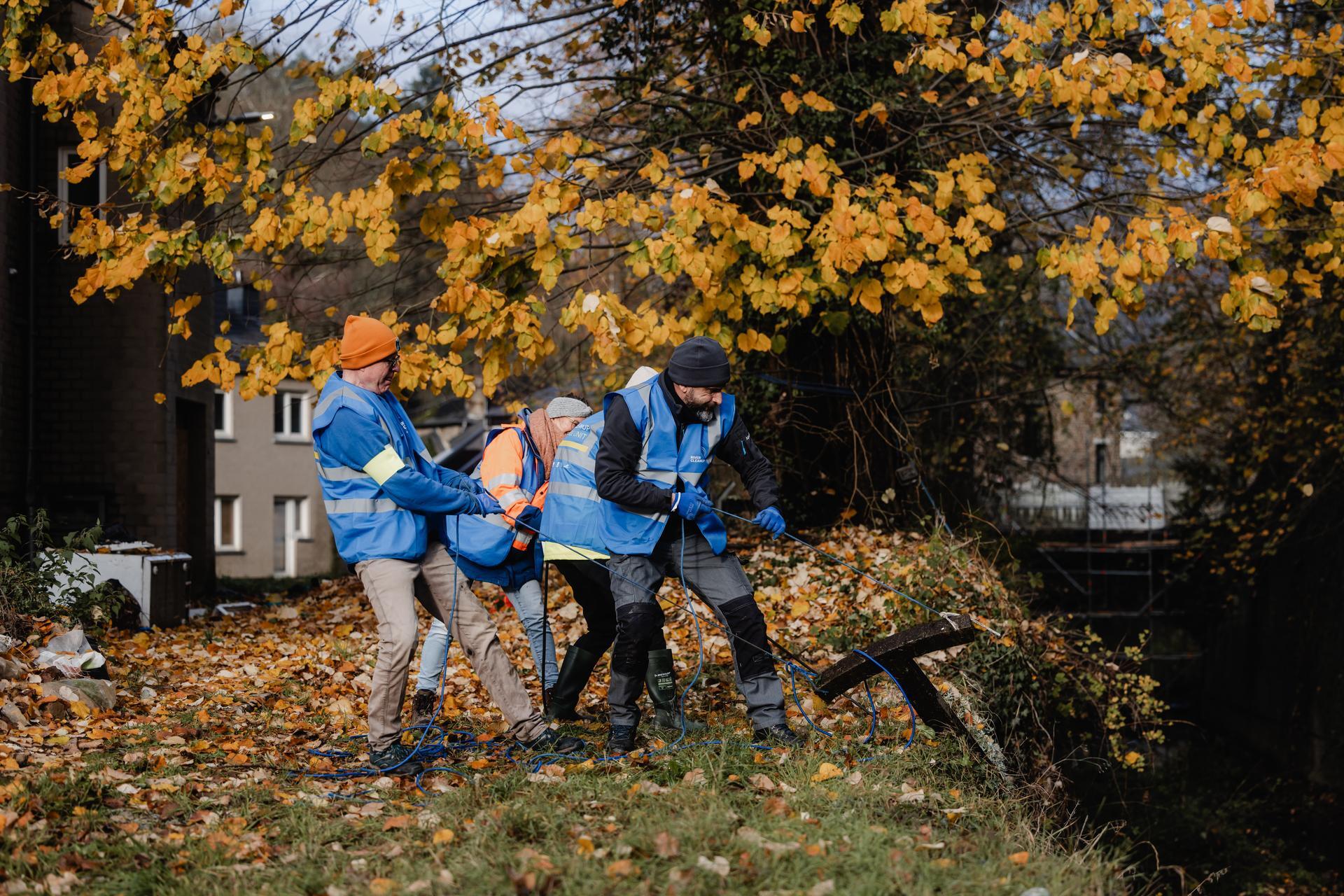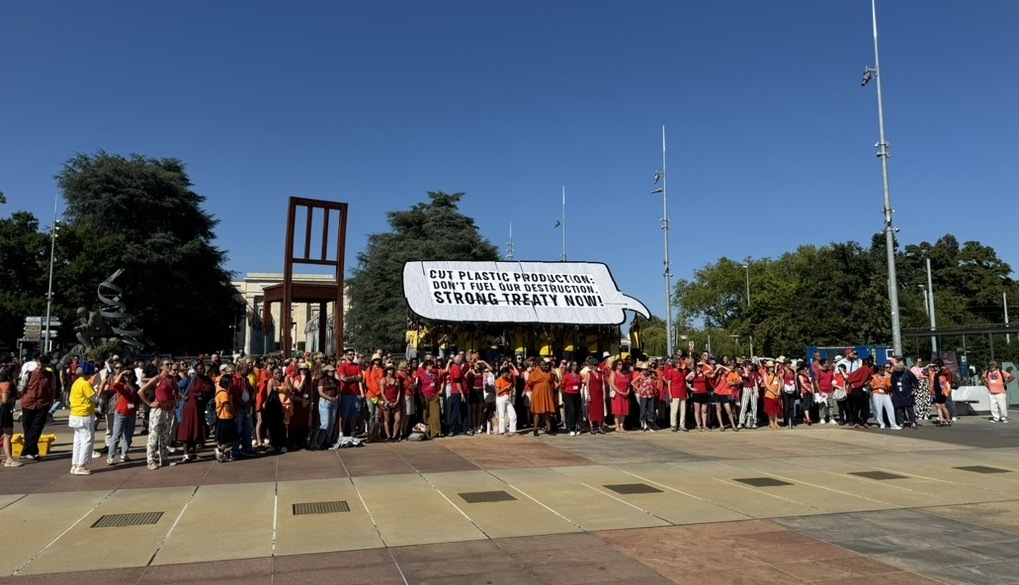
Z-Impact Pioneers Spotlights Founder Thomas de Groote
The episode features founder Thomas de Groote as he reflects on the journey that shaped River Cleanup from a simple idea into an international movement.

PRESS RELEASE - March 14, 2025
The Flanders Marine Institute (VLIZ), VITO, and River Cleanup joined forces with INSPIRE, a European pilot project that tackles plastic pollution in rivers in an innovative way. Today, they presented the first results in their test zone, on the banks of the Scheldt in Temse.
Plastic waste in the ocean is a growing problem. It is estimated that the ocean contains around 150 million tonnes of plastic. Rivers play a significant role in transporting plastic to the seas and the ocean. Europe wants to restore the ocean and other water bodies by 2030. The INSPIRE project takes a holistic approach by combining research, innovation, citizen participation, and investments in sustainable technologies. In addition to the Scheldt, it focuses on five other major European rivers that serve as test zones: the Po, Rhine, Douro, Kamniška Bistrica, and the Danube.
For four years, 25 European partners and one partner from Thailand join forces in the INSPIRE consortium. The European Commission is financing the project with 10 million euros. Together, they are testing twenty innovative technologies and solutions, such as smart cameras and drones, to detect and drastically reduce the amount of macro and microplastics in rivers. After all, the initiative focuses on detecting, collecting, and preventing waste and implements this holistic approach simultaneously on a large scale in several rivers. A first of its kind! Concrete solutions for a cleaner future – with the ultimate goal: protecting rivers for future generations.
With the Flanders Marine Institute (VLIZ), VITO, and River Cleanup, three Belgian partners are involved in INSPIRE. VLIZ acts as project coordinator, reports to the European Commission, and quantifies the efficiency of the actions taken to reduce the amount of plastic in the environment. Research institute VITO maps the flow and accumulation of plastic using cameras under bridges and on drones and the use of machine learning. The non-profit organization River Cleanup shares expertise on clean-up actions, innovative collection techniques, and active reduction of single-use plastics.
Today, on the International Day of Action for Rivers, the three parties presented the first results and demonstrated various detection and analysis techniques. One of these instruments is a mantanet, a trawl VLIZ uses to filter floating microplastics from surface water. Another way to filter microplastics from sea or freshwater is via a ferrybox, a pump system connected to a series of sieves with different mesh sizes.
"INSPIRE solutions are adaptable to local conditions. The aim is to develop a model that can be implemented in every river worldwide after the project has ended," says Gert Everaert, Vice Research Director of VLIZ and coordinator of INSPIRE. "This will allow stakeholders to map the plastic problem themselves and choose the most suitable prevention and collection strategies."
VITO uses drones and cameras under bridges to map plastic waste along riverbanks or floating on the river. "With drone flights and cameras, we got a complete bird's eye view of the banks in Temse, and we can detect plastic waste via AI image analysis, including hard-to-reach areas," says Arne Van Overloop, remote sensing AI expert at VITO.
The JRC floating litter monitoring app uses visual observations from ships, bridges, or banks to enter data on floating macro-waste at sea and rivers. Users can use a smartphone to photograph litter and enter it into the application. This data will be linked to the European Commission's plastic pollution database.
Today, River Cleanup installed the first smart EcoBin on Belgian soil in Temse. The smart EcoBin is an advanced version of the traditional EcoBin, a container for collecting disposable plastic. With a sensor based on audio waves, it continuously measures the distance between the sensor and the waste level in the bin. The data is sent to a central dashboard via a SIM card, where the amount of waste is accurately monitored. This enables more efficient planning of collection routes. River Cleanup also wants to roll out this technology in Indonesia and Cameroon, where it manages its own sorting centers. The smart EcoBin is being tested in Temse to refine its impact and effectiveness further.
"Technology plays a crucial role in our holistic approach to making rivers plastic-free," says Thomas de Groote, founder and CEO of River Cleanup. "Innovations such as the smart EcoBin not only help us to collect waste more efficiently but also contribute to awareness of litter and behavioral change. We are gradually initiating real change by combining prevention and citizen participation."
Although the project will run until 2027, initial results already confirm that the Scheldt is heavily polluted with micro- and macroplastics. In certain locations, concentrations of up to 11,000 small plastic particles per square meter were identified. These harmful microplastics likely originate from the port of Antwerp, carried downstream by the current, becoming trapped in vegetation along the Scheldt's banks. Initial analysis of macroplastic waste (larger than 2.5 cm) collected by River Cleanup aligns with previously known pollution patterns: beverage packaging (such as cans and PET bottles), cigarette butts (primarily composed of plastic), and miscellaneous plastic items constitute most of the waste. A striking finding from the JRC data reveals that plastic represents 96.2% of all waste along the banks, underscoring that plastic waste does not degrade naturally.
Therefore, continued action and preventive solutions against plastic pollution remain critical. River Cleanup is actively conducting cleanup initiatives within the Temse test zone. "Unfortunately, tackling litter and illegal dumping remains a daily challenge in Temse," says Brigitte Cauwa, Alderman for Housing, Diversity, Green, Waste, Animal Welfare, and Social Economy. "River Cleanup frequently organizes campaigns in our community. We eagerly anticipate the Smart EcoBin initiative and the pilot project's outcomes." The year's first cleanup event, which everyone can attend for free by registering here, is scheduled for April 6, 2025.

The episode features founder Thomas de Groote as he reflects on the journey that shaped River Cleanup from a simple idea into an international movement.

River Cleanup teams around the world came together with incredible energy to join CNN’s Call to Earth Day.

River Watchers turns every smartphone user into a litter detective in new citizen science project

New team targets post-flood waste to protect communities and ecosystems

In early August, around 180 countries negotiated over a treaty to combat the plastic crisis. Unfortunately, they could not reach an ambitious agreement to address this pressing issue.
___responsive_2428_1619-(1)-responsive.jpg)
What if ten minutes could really make a difference? With this simple thought, River Cleanup is relaunching the #10minchallenge: a simple action that can open your eyes on the waste surrounding us.
Showing 1 to 6 of 49 results